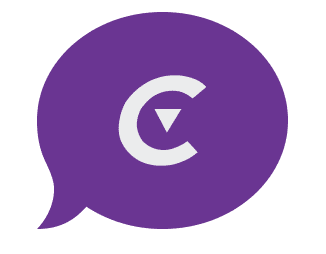At the Professional Association for Customer Engagement’s (PACE) ACX21 virtual convention, Convoso CEO Nima Hakimi joined a panel of compliance experts to review some of the biggest issues and changes call centers faced in 2021.
This panel, a live edition of the Compliance Officer’s Forum, was hosted by Josh Stevens of law firmMac Murray & Shuster LLP, and in addition to Hakimi, included Reid Houser, VP of Global Compliance at Sitel Group, and Isaac Shloss, CTO at Groupo NGN.
To help you navigate the fast-changing compliance landscape, we’ve compiled the key takeaways from the group’s lively discussion of landmark call center regulation of 2021, including:
- Florida’s SB 1120
- Facebook v. Duguid
- STIR/SHAKEN
2021 in Call Center Regulations
“On the legislative front, 2021 has been a relatively quiet year,” said Josh Stevens. However, in the world of call centers, quiet certainly doesn’t mean uneventful. Stevens and the rest of the panel discussed the impact felt by call centers over the course of 2021.
Florida SB 1120
One 2021 bill that continues to be top-of-mind for many in the call center industry is Florida’s SB 1120, popularly known as the “Florida Mini TCPA.”
At first glance, says Isaac Shloss, the bill doesn’t look like a big deal. “But when you break it out and compare it to what was in place previously, there are a few big takeaways.”
The changes implemented by the bill include a shortening of valid call times by one hour, from 9:00 to 8:00 PM, as well as a prohibition on calling one person more than three times within 24 hours. (Something Shloss says you should probably implement across the board anyways.) However, the most profound impact ushered in by the Florida law is its potential change to how you can call your customers.
Prior to the passing of SB 1120, call centers could dial numbers without consent, as long as they are not using an automatic telephone dialing system (ATDS). As Shloss puts it, the Florida law doesn’t take this into consideration: “Florida doesn’t talk about the technology; they talk about the methodology. [The statute] simply says you can’t ‘automatically dial or select’ the person you’re calling.”
This change, in Shloss’s view, potentially outlaws click-to-dial modes where numbers are automatically routed to an agent, who then initiates the call.
The Remaining Risk and Uncertainty of SB 1120
Importantly, though, this perspective will need to be weighed in the judicial branch: the law itself lacks a definition of “automatically,” leaving call centers waiting on the courts to more clearly stipulate which dialing methods are compliant under the law.
In the face of this uncertainty, the bill also presents a potential danger to call centers. SB 1120 established a private right of action, meaning violators could be subject to costly litigation and penalties.
This increased level of risk has led call centers to take varying approaches. “Some businesses are saying ‘we’re just not calling Florida,’” according to Shloss. “Other businesses are rolling the dice.”
Regardless of whether businesses exercise caution or not in the Sunshine State, Shloss says it’s critically important that call centers consult with expert counsel to establish a defendable position and support compliance.
Supreme Court Case Drives Pre-Recorded Messages Cases
Another important development in 2021 call center regulations was discussed at forum: the Supreme Court’s Facebook v. Duguid decision. Although, because many in the industry are so well aware of the April decision by this point, the panel decided to focus on one particular effect of the bill.
Because the case clarified and simplified the definition of ATDS under the TCPA, many plaintiffs changed their focus. Instead of bringing cases related to ATDS usage, Stevens says that many more TCPA cases are honing in on rules for pre-recorded messages and the Do-Not-Call (DNC) List.
“We are seeing a real uptick in class actions that are based around these violations and their state-level analogs,” says Stevens. “I would tell everybody to pay attention to [those developments] and really button up your procedures because that’s an emerging area of risk.”
STIR/SHAKEN Takes Shape
Alongside these big cases, there was another call center regulation being rolled out. The STIR/SHAKEN framework initially took effect on July 1, 2021. Of course, for as much discussion as there has been around the framework’s implementation, each of the panelists said there hasn’t been much impact, which comes as good news for outbound call centers.
“As we look to the future, the impact of STIR/SHAKEN is hopefully only going to be positive in terms of starting to weed out some of the bad actors and cutting down on fraudulent calls. For the good guys, you put your tools and procedures in place, and it works. But certainly for the bad actors, this is going to be a bit of a headache moving forward.”
Supporting Call Center Compliance Beyond 2021
Even in a quiet year, a whole lot can change in the world of outbound call center compliance. Stay on top of new regulations and support compliance with the help of TCPA best practices.
And learn more about how partnering with the right dialer partner can simplify compliance while improving performance when you sign up for a free live demo of Convoso’s powerful outbound dialer software.
Schedule a Demo
DISCLAIMER: The information on this page and related links is provided for general education purposes only and is not legal advice. Convoso does not guarantee the accuracy or appropriateness of this information to your situation. You are solely responsible for using Convoso’s services in a legally compliant way and should consult your legal counsel for compliance advice. Any quotes are solely the views of the quoted person and do not necessarily reflect the views or opinions of Convoso.



